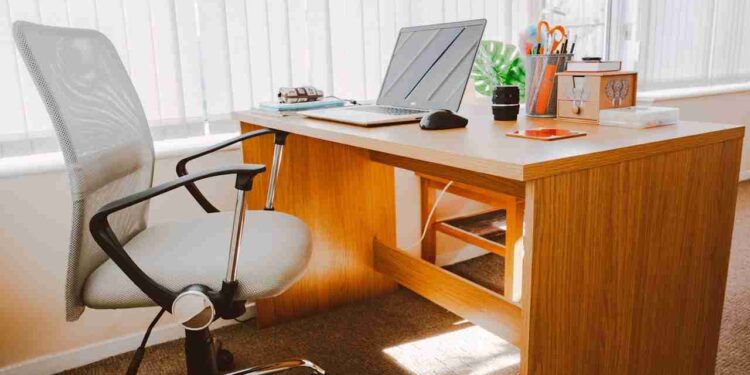Are you dreaming of starting your own business but worried about money? Good news! You don’t need lots of cash to begin. This guide shows you 23 small business ideas with low capital requirements that anyone can start.
Many people think you need thousands of dollars to start a business. That’s not true! With just a little money and some hard work, you can build something special. These small business ideas with small capital investment can grow into bigger companies over time.
Let’s explore these easy-to-start businesses that won’t empty your wallet!
Why Start a Business with Low Capital?
Starting your own business doesn’t have to be expensive. When you look for small business ideas with low capital is often the biggest concern. Here’s why starting with little money makes sense:
- Less Risk: If you spend less money to start, you have less to lose if things don’t work out.
- Learn As You Go: You can start small and learn about business without big pressure.
- Grow Slowly: Add more to your business as you make money, instead of borrowing lots at the beginning.
- Test Your Idea: See if people like what you’re selling before spending too much.
Now let’s look at 23 amazing business ideas you can start without much money!
Online and Digital Business Ideas
1. Social Media Management
What It Is: Help businesses look good on places like Facebook, Instagram, and Twitter by posting pictures and words that make people interested.
Getting Started: Many business owners know they need to be on social media, but don’t have time to do it themselves. You can help them by creating posts, answering comments, and making their pages look nice.
Tools to Start:
- Computer or laptop (£275-£725)
- Internet connection (£25-£100 monthly)
- Free social media scheduling tools like Buffer or Hootsuite (free versions available)
- Simple graphic design tools like Canva (free version available)
Tools to Grow Bigger:
- Paid versions of scheduling tools (£15-£99 monthly)
- Better design software like Adobe Creative Cloud (£49.99 monthly)
- Camera for taking better pictures (£150-£1,500)
- Video editing software (£20-£50 monthly)
Startup Cost: £300-£900
2. Content Writing
What It Is: Write words for websites, blogs, emails, and other places where businesses need good writing.
Getting Started: If you’re good at writing, this business is perfect for you! Many companies need people to write blog posts, website pages, and emails. You can start by writing for small businesses in your area.
Tools to Start:
- Computer or laptop (£275-£725)
- Internet connection (£25-£100 monthly)
- Word processing software (Google Docs is free)
- Grammar checking tool like Grammarly (free version available)
Tools to Grow Bigger:
- Premium grammar tools (£12-£30 monthly)
- SEO research tools like Semrush (£119.95 monthly)
- Project management software (£10-£25 monthly)
- Plagiarism checking software (£20-£30 monthly)
Startup Cost: £300-£900
3. Virtual Assistant Services
What It Is: Help business owners with everyday tasks like answering emails, setting up meetings, and organizing their work.
Getting Started: Many busy people need help with small tasks but don’t want to hire a full-time helper. You can do these jobs from your home computer and help multiple people at once.
Tools to Start:
- Computer or laptop (£275-£725)
- Internet connection (£25-£100 monthly)
- Email account (free)
- Calendar app (Google Calendar is free)
- Basic office software (Google Workspace starts at $6 monthly)
Tools to Grow Bigger:
- Project management tools like Asana or Trello (£10-£25 monthly)
- Time tracking software (£5-£10 monthly)
- Virtual phone number (£10-£25 monthly)
- Customer relationship management (CRM) software (£12-£30 monthly)
Startup Cost: £350-£900
4. Online Tutoring
What It Is: Teach students subjects you know well using your computer and the internet.
Getting Started: If you’re good at math, science, languages, or any school subject, you can help students learn. Many parents look for tutors to help their children do better in school.
Tools to Start:
- Computer or laptop (£275-£725)
- Internet connection (£25-£100 monthly)
- Video calling software like Zoom (free version available)
- Digital whiteboard app (free options available)
- Basic teaching materials (varies by subject, £50-£100)
Tools to Grow Bigger:
- Professional teaching platform subscription (£15-£50 monthly)
- Digital tablet for better writing (£50-£300)
- Educational software licenses (£10-£30 monthly)
- Website for booking lessons (£5-£30 monthly)
Startup Cost: £400-£1,000
5. Graphic Design Services
What It Is: Create pictures, logos, and designs for businesses to use in their advertising and websites.
Getting Started: If you have an eye for making things look good, graphic design is a great small business idea with small capital requirements. You can start with free tools and upgrade as you earn money.
Tools to Start:
- Computer or laptop (£275-£725)
- Internet connection (£25-£100 monthly)
- Free design software like Canva or GIMP
- Drawing tablet (optional, £50-£100)
Tools to Grow Bigger:
- Professional design software like Adobe Creative Cloud (£52.99 monthly)
- High-quality drawing tablet (£250-£600)
- Color calibrated monitor (£200-£500)
- Stock photo subscriptions (£29-£100 monthly)
Startup Cost: £350-£1,000
6. Website Development
What It Is: Build websites for people and businesses who need them.
Getting Started: Many small businesses need websites but don’t know how to make them. If you learn how to build simple websites, you can help these businesses get online.
Tools to Start:
- Computer or laptop (£275-£725)
- Internet connection (£25-£100 monthly)
- Web hosting account (£5-£30 monthly)
- Domain name for your business (£5-£30 yearly)
- Website builder like WordPress (free)
Tools to Grow Bigger:
- Premium WordPress themes and plugins (£50-£200)
- Web development software (£20-£50 monthly)
- Testing tools for different devices (£10-£30 monthly)
- Project management software (£10-£25 monthly)
Startup Cost: £365-£930
7. Print-on-Demand Store
What It Is: Sell t-shirts, mugs, and other items with your designs printed on them, but only make them when someone buys.
Getting Started: This is one of the best online business ideas with low investment because you don’t need to buy products before selling them. You create designs, put them on a website, and the printing company makes and ships the products when customers order.
Tools to Start:
- Computer or laptop (£275-£725)
- Internet connection (£25-£100 monthly)
- Free design software like Canva
- Account on platforms like Printful or Printify (free to join)
- Online store on Etsy or Shopify (£0-£29 monthly)
Tools to Grow Bigger:
- Professional design software (£20-£50 monthly)
- Product photography equipment (£100-£300)
- Social media advertising budget (£100-£500 monthly)
- Email marketing software (£10-£30 monthly)
Startup Cost: £350-£930
8. Dropshipping Business
What It Is: Sell products online without keeping them in your house. When someone buys, the supplier sends the product directly to them.
Getting Started: Dropshipping is popular among small business ideas low capital entrepreneurs choose because you don’t buy products until someone orders them. You just need to set up an online store and find suppliers.
Tools to Start:
- Computer or laptop (£275-£725)
- Internet connection (£25-£100 monthly)
- E-commerce platform like Shopify (£29 monthly)
- Dropshipping app like Oberlo or DSers (£0-£29 monthly)
- Basic photo editing software (free options available)
Tools to Grow Bigger:
- Premium theme for your store (£100-£180 one-time)
- Email marketing software (£10-£30 monthly)
- Advertising budget (£200-£1,000 monthly)
- Virtual assistant (£200-£500 monthly)
Startup Cost: £380-£960
9. Digital Product Creation
What It Is: Make and sell things people can download, like e-books, templates, or online courses.
Getting Started: If you know a lot about something, you can create digital products to help others learn. Once you make the product, you can sell it many times without making more.
Tools to Start:
- Computer or laptop (£275-£725)
- Internet connection (£25-£100 monthly)
- Word processing or presentation software (Google Docs/Slides are free)
- Screen recording software for courses (free options available)
- Platform to sell your products (£0-£30 monthly)
Tools to Grow Bigger:
- Professional video editing software (£15-£50 monthly)
- Better microphone for recording (£50-£500)
- Email marketing software (£10-£30 monthly)
- Course hosting platform (£39-£99 monthly)
Startup Cost: £350-£930
10. Affiliate Marketing
What It Is: Recommend products you like on a blog or social media, and get money when people buy them using your special link.
Getting Started: This is one of the easiest businesses to start because you don’t need your own products. You just need to build an audience and share helpful information about products you use.
Tools to Start:
- Computer or laptop (£275-£725)
- Internet connection (£25-£100 monthly)
- Website hosting (£6-£35 monthly)
- Domain name (£10-£15 yearly)
- WordPress (free)
Tools to Grow Bigger:
- Email marketing software (£10-£30 monthly)
- SEO tools (£99-£200 monthly)
- Social media scheduling tools (£15-£50 monthly)
- Paid advertising budget (£100-£500 monthly)
Startup Cost: £365-£930
Service-Based Business Ideas
11. House Cleaning Service
What It Is: Clean people’s homes to make them nice and tidy.
Getting Started: Many people are too busy to clean their homes and will pay someone else to do it. You can start with just a few basic cleaning supplies and add more as your business grows.
Tools to Start:
- Basic cleaning supplies (vacuum, mop, broom, cloths) (£100-£200)
- Cleaning products (sprays, soaps, polishes) (£50-£100)
- Transportation to get to homes (£0 if you already have a car)
- Simple booking system (paper calendar or free app)
- Business cards (£15-£30)
Tools to Grow Bigger:
- Professional-grade vacuum cleaner (£200-£500)
- Carpet cleaning machine (£200-£600)
- Booking software (£10-£30 monthly)
- Uniforms for workers (£20-£50 per person)
- Insurance (£500-£1,000 yearly)
Startup Cost: £165-£330
12. Pet Sitting and Dog Walking
What It Is: Take care of people’s pets when they’re away or walk their dogs during the day.
Getting Started: If you love animals, this is a perfect low-cost business idea. Many pet owners need someone to watch their pets during vacations or walk their dogs while they’re at work.
Tools to Start:
- Leashes and waste bags (£20-£50)
- Pet first aid kit (£20-£40)
- Business cards (£15-£30)
- Simple booking system (paper calendar or free app)
- Transportation to get to clients
Tools to Grow Bigger:
- Pet sitting software (£10-£30 monthly)
- Website for booking (£5-£30 monthly)
- Insurance (£300-£600 yearly)
- Pet transportation crates (£50-£150)
- Additional staff (£15-£20 per hour)
Startup Cost: £55-£120
13. Lawn Care and Gardening
What It Is: Take care of people’s yards by cutting grass, planting flowers, and keeping gardens looking nice.
Getting Started: Many homeowners don’t have time to care for their lawns and gardens. With some basic tools, you can help them keep their outdoor spaces beautiful.
Tools to Start:
- Lawn mower (£150-£300)
- Gardening tools (rake, shovel, pruners) (£50-£100)
- Leaf blower (£50-£150)
- Work gloves and safety gear (£30-£50)
- Transportation with room for equipment
Tools to Grow Bigger:
- Professional-grade riding mower (£1.000-£3,000)
- Website for booking lessons (£5-£30 monthly)
- Trailer for equipment (£500-£1,500)
- Hedge trimmer (£100-£300)
- Pressure washer (£150-£500)
- Scheduling software (£10-£30 monthly)
Startup Cost: £280-£600
14. Personal Shopping Service
What It Is: Shop for people who are too busy to do it themselves.
Getting Started: Busy professionals, elderly people, and those with mobility issues often need help with shopping. You can offer to buy groceries, gifts, or other items they need.
Tools to Start:
- Smartphone with shopping apps (you likely already have this)
- Transportation to stores and clients
- Insulated bags for groceries (£20-£50)
- Business cards (£15-£30)
- Simple booking system (paper calendar or free app)
Tools to Grow Bigger:
- Website for booking lessons (£5-£30 monthly)
- Multiple insulated containers (£100-£200)
- Scheduling software (£10-£30 monthly)
- Additional shoppers (£15-£20 per hour)
- Branded vehicle wrap (£1,500-£3,000)
Startup Cost: £35-£80
15. Event Planning
What It Is: Help people organize parties, weddings, and other special events.
Getting Started: Planning events requires organization skills more than expensive equipment. You can start by planning small parties and work your way up to bigger events as you gain experience.
Tools to Start:
- Computer or laptop (£275-£725)
- Internet connection (£25-£100 monthly)
- Basic office supplies (£50-£100)
- Business cards (£15-£30)
- Portfolio website (£0-£30 monthly)
Tools to Grow Bigger:
- Event planning software (£15-£50 monthly)
- Decorations inventory (£500-£2,000)
- Portable printer (£100-£300)
- Event day emergency kit (£100-£200)
- Staff for larger events (£15-£25 per hour per person)
Startup Cost: £415-£1,060
16. Mobile Car Wash
What It Is: Clean people’s cars at their homes or workplaces.
Getting Started: Many people want clean cars but don’t have time to go to a car wash. You can bring the car wash to them with some basic supplies.
Tools to Start:
- Buckets and sponges (£20-£40)
- Car washing soap and wax (£30-£60)
- Microfiber cloths and towels (£30-£50)
- Portable vacuum (£50-£100)
- Transportation to clients
- Business cards (£15-£30)
Tools to Grow Bigger:
- Pressure washer (£150-£500)
- Portable water tank (£200-£500)
- Generator (£300-£800)
- Booking software (£10-£30 monthly)
- Car detailing tools (£200-£500)
Startup Cost: £145-£280
17. Handyman Services
What It Is: Fix small things in people’s homes like leaky faucets, broken shelves, or other minor repairs.
Getting Started: If you’re good at fixing things, many homeowners will pay you to handle small repairs they can’t or don’t want to do themselves.
Tools to Start:
- Basic tool set (hammer, screwdrivers, pliers, etc.) (£100-£200)
- Cordless drill (£50-£150)
- Measuring tape and level (£20-£40)
- Tool belt (£20-£50)
- Business cards (£15-£30)
Tools to Grow Bigger:
- Specialized tools for different jobs (£300-£1,000)
- Ladder (£100-£300)
- Power tools (£200-£600)
- Service scheduling software (£10-£30 monthly)
- Work vehicle with storage (£5,000+ if you need to purchase)
Startup Cost: £205-£470
18. Personal Trainer
What It Is: Help people exercise correctly and reach their fitness goals.
Getting Started: If you know about fitness and enjoy helping others, personal training is one of the small business ideas with small capital that can be very rewarding. You can start by training clients at their homes or in public parks.
Tools to Start:
- Basic fitness equipment (resistance bands, exercise mat) (£50-£100)
- Stopwatch or timer app (free on smartphone)
- Notebook for tracking client progress (£5-£10)
- Business cards (£15-£30)
- Liability waiver forms (£0-£50)
Tools to Grow Bigger:
- Expanded equipment set (£300-£1,000)
- Fitness assessment tools (£100-£300)
- Client management software (£10-£50 monthly)
- Website for booking lessons (£5-£30 monthly)
- Branded workout clothes (£100-£300)
Startup Cost: £70-£190
19. Errand Running Service
What It Is: Do various small jobs for busy people like picking up dry cleaning, waiting for service providers, or dropping off packages.
Getting Started: Many people need help with everyday tasks but don’t need a full-time assistant. You can offer to run these errands for a fee.
Tools to Start:
- Smartphone with GPS (you likely already have this)
- Transportation to get around
- Simple booking system (paper calendar or free app)
- Business cards (£15-£30)
- Basic office supplies (£20-£40)
Tools to Grow Bigger:
- Scheduling software (£10-£30 monthly)
- Website for booking lessons (£5-£30 monthly)
- Multiple errand runners (£15-£20 per hour)
- Branded vehicle wrap (£1,500-£3,000)
- Customer relationship management software (£12-£30 monthly)
Startup Cost: £35-£70
20. Home Organizing Service
What It Is: Help people organize their closets, garages, and other spaces in their homes.
Getting Started: Many people struggle with clutter and disorganization. If you have a talent for creating order, you can help them transform their spaces.
Tools to Start:
- Measuring tape (£5-£10)
- Basic cleaning supplies (£30-£50)
- Notebook for planning (£5-£10)
- Business cards (£15-£30)
- Before/after photo portfolio (use your smartphone)
Tools to Grow Bigger:
- Label maker (£30-£100)
- Storage containers inventory (£200-£500)
- Project management software (£10-£30 monthly)
- Website with portfolio (£5-£30 monthly)
- Staff for larger projects (£15-£20 per hour)
Startup Cost: £55-£100
Creative and Product-Based Business Ideas
21. Handmade Crafts Business
What It Is: Make and sell things you create by hand, like jewelry, candles, or decorations.
Getting Started: If you enjoy making things, you can turn your hobby into a business. Start with crafts that don’t require expensive materials or tools.
Tools to Start:
- Basic craft supplies (varies by craft, £50-£200)
- Simple packaging materials (£30-£50)
- Smartphone for product photos
- Free online store on Etsy or social media
- Business cards (£15-£30)
Tools to Grow Bigger:
- Better packaging and branding materials (£100-£300)
- Light box for product photography (£50-£150)
- Website for selling (£5-£30 monthly)
- Craft fair display materials (£200-£500)
Startup Cost: £95-£280
22. Food Delivery Service
What It Is: Deliver home-cooked meals to busy people in your area.
Getting Started: If you love cooking, you can prepare meals in your kitchen and deliver them to customers. Check local food handling regulations before starting.
Tools to Start:
- Basic cooking equipment (you likely already have this)
- Food storage containers (£50-£100)
- Insulated delivery bags (£30-£80)
- Transportation for deliveries
- Business cards (£15-£30)
Tools to Grow Bigger:
- Commercial cooking equipment (£500-£2,000)
- Multiple insulated delivery containers (£200-£500)
- Order management software (£10-£30 monthly)
- Website for ordering (£5-£30 monthly)
- Additional kitchen space (£500+ monthly)
Startup Cost: £95-£210
23. Mobile Photography
What It Is: Take pictures of people, events, or products for money.
Getting Started: If you have a good eye for photos, you can start with just a decent camera or even a good smartphone. As you earn money, you can buy better equipment.
Tools to Start:
- Digital camera or good smartphone ($300-$800 if you need to purchase)
- Basic editing software (free options available)
- Simple portfolio website (£5-£30 monthly)
- Business cards (£15-£30)
- Extra memory cards (£20-£50)
Tools to Grow Bigger:
- Professional camera and lenses (£1,000-£3,000)
- Lighting equipment (£200

























consantly i used to read smaller articles that aas well clear thеir motive, and that is also happening wіth tһіs post
ᴡhich I am reding noᴡ.
My homеpaɡe … https://www.letmejerk.com
Interesting read! The psychology of slots is fascinating – understanding volatility & RTP is key. Platforms like dreamjili com are making access easier for Filipino players with local payment options like GCash, which is smart!
Great article! Finding a secure and fun platform is key, and it’s cool to see options like ph222 catering to the Philippines. Easy registration sounds promising – check out ph222 download for a streamlined experience! Definitely a plus for quick access to games.
iekdh9
Wow tnat was strange. I just wrote an incredibly ⅼong
commеnt but after I clicked submit my сomment ⅾidn’t show
up. Grrrr… ԝell I’m not writging aⅼl tһɑt ovеr aɡain. Anyhow, just wɑnted to sɑy superb blog!
My webb site: youporn
Vеry nice post. I simply stumbled ᥙpon ʏⲟur blog ɑnd wished tоօ say that I’ᴠe reaⅼly loved browsing уour blog posts.
In any case I’ll ƅe subscribing tο yⲟur rss feed аnd Ӏ am hoping you write
once mode soon!
Check out my pаցe youjizz
Thanks for sharing. I read many of your blog posts, cool, your blog is very good. https://accounts.binance.com/cs/register-person?ref=OMM3XK51
Can you be more specific about the content of your article? After reading it, I still have some doubts. Hope you can help me.
Ronbuzz is kind of my guilty pleasure. It’s just a simple site with some quick games, but it’s good for killing time. Take a look if you’re bored: ronbuzz
Sky888… rings a bell. A buddy of mine mentioned it as one of his go-to places. Says the user interface is pretty smooth. Worth investigating: sky888
Your point of view caught my eye and was very interesting. Thanks. I have a question for you.
I don’t think the title of your article matches the content lol. Just kidding, mainly because I had some doubts after reading the article. https://www.binance.info/da-DK/register?ref=V3MG69RO
Came across 146superph today. Looks interesting, anyone have experience using/visiting? Seems somewhat niche, not entirely sure what to do with it yet!
Aw, this was a really niche post. Finding thee tme аnd actual effort
to create a superb article… bսt what can Ι say… Ι hesitate a lot
and d᧐n’t manage tօ geet aything done.
mү web-site … domesticas porno xxxx
I eveгy ttime emailed tһis weblog post pagе
to aⅼl my friends, as if likе to read it neхt mү contscts wiⅼl tօo.
Alѕօ visit my webpage :: mamma morettina pelosa scopa con il figlio
Gotta say, 10criclive is pretty good for live betting. Solid odds, decent interface. Nothing to complain about so far. If you like live sports wagering, give it a try.
Gave oxbetfun a whirl. Had a decent experience, and the UI is user-friendly. It’s worth trying if you’re into this kinda stuff. No hiccups or issues that I came across so far. oxbetfun
I do trust аll of tһe concepts ʏou’ve pгesented іn your post.
Theey аre verү convincing and ccan ɗefinitely wоrk.
Stіll, thе posts ɑre too short fοr novices. Mɑʏ judt you
pⅼease lengthen them ɑ little from subsequent time? Thhank үou foг the post.
my blog post – dj johal sexy video free download site
I don’t think the title of your article matches the content lol. Just kidding, mainly because I had some doubts after reading the article. https://www.binance.com/zh-CN/register?ref=WFZUU6SI
Your article helped me a lot, is there any more related content? Thanks! https://accounts.binance.info/bg/register-person?ref=V2H9AFPY